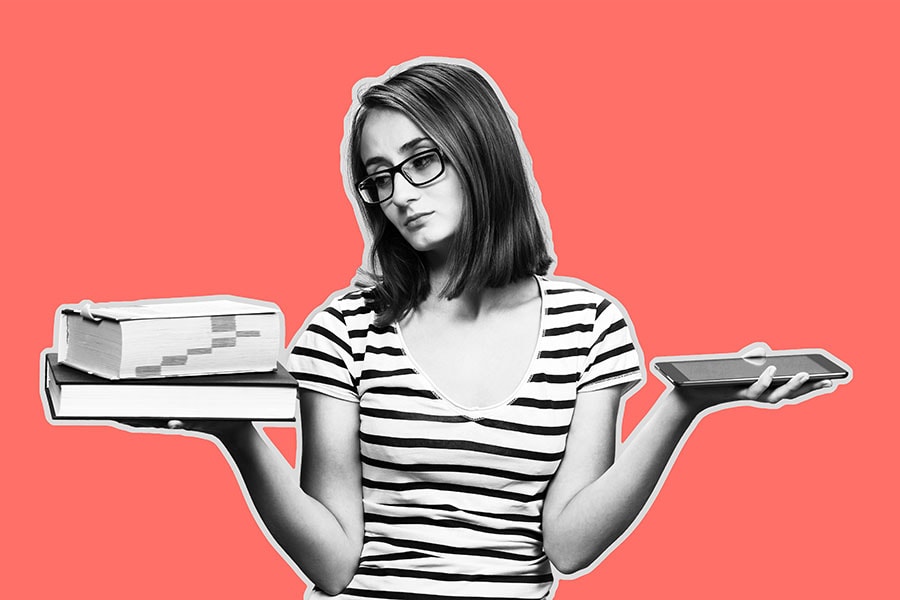
We react differently to paper vs. digital requests
Our willingness to act virtuously changes depending on how we're asked
 People see what they do on paper as more real and thus as more consequential for how they think about themselves and for maintaining a positive image of themselves
Image: Shutterstock
People see what they do on paper as more real and thus as more consequential for how they think about themselves and for maintaining a positive image of themselves
Image: Shutterstock
One of your favorite nonprofits sends out a call for volunteers. How likely are you to offer up your time? It may depend on whether that request comes in the form of a paper mailer or an email.
New research by Maferima Touré-Tillery, an associate professor of marketing at the Kellogg School, finds that people are more likely to engage in virtuous behavior when they make their selections on paper than when they are using a digital device—a pattern she and her coauthor Lili Wang of Zhejiang University dubbed the “good on paper” effect. Their study, which was conducted in both the U.S. and China, shows that the effect extends to several types of virtuous behavior, from charitable giving to choosing educational reading material over page turners.
“People are more virtuous on paper than on a digital device,” Touré-Tillery explains. “And we find the reason for that is that they see what they do on paper as more real and thus as more consequential for how they think about themselves and for maintaining a positive image of themselves.”
In other words, what we do on paper feels like it says more about who we really are.
Why Virtual Doesn’t Always Mean Virtuous
To investigate their “good on paper” hypothesis, the research team approached 200 adults walking downtown in a large American city and asked them to complete a survey. Half of the participants were given a pen and paper to complete the survey and the other half an iPad. Both versions used a similar layout and font.
[This article has been republished, with permission, from Kellogg Insight, the faculty research & ideas magazine of Kellogg School of Management at Northwestern University]







